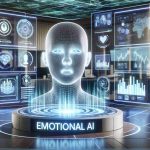A recent selection by the American film critique site IndieWire has placed Steven Spielberg’s 2001 science fiction film, “A.I. Artificial Intelligence,” at the top of its list of the 100 best films since 2000. This recognition has surprised many, particularly because the film, known for its exploration of artificial intelligence and emotional depth, was initially met with mixed reviews upon its release.
In addition to Spielberg’s notable achievement, several influential films from the Chinese-speaking cinema have also made the cut. Leading the charge is Edward Yang’s poignant drama, “Yi Yi,” which secured the second position. Renowned Taiwanese directors such as Ang Lee, with “Crouching Tiger, Hidden Dragon,” and “Brokeback Mountain,” also found their place in the rankings, alongside Wong Kar-wai, whose films “Chungking Express” and “2046” ranked highly.
Notably, animated films from Japan and Korea garnered attention as well. Hayao Miyazaki’s masterpiece “Spirited Away” landed in the tenth spot, showcasing the global impact of animation. Other notable entries include Satoshi Kon’s “Millennium Actress” and several acclaimed Korean films, proving the diverse storytelling from Asia has made a significant impact on global cinema.
In essence, Spielberg’s “A.I.” not only reignited discussions about technology’s role in society but also highlighted the pivotal contributions of international cinema to the arts.
Exploring Spielberg’s Vision: The Cultural and Technological Implications of “A.I. Artificial Intelligence”
In examining Steven Spielberg’s “A.I. Artificial Intelligence,” it’s important to delve deeper into the film’s implications beyond its initial reception. The movie, originally conceived by Stanley Kubrick, posthumously came to fruition through Spielberg’s lens, blending sci-fi with profound emotional narratives. As it stands, “A.I.” explores complex themes related to humanity, ethics in technology, and the emotional landscapes of artificial beings.
What are the key questions surrounding the film?
One of the most compelling questions is: What does “A.I. Artificial Intelligence” reveal about human nature? The film raises existential queries regarding love, loss, and the innate desire for connection — potent themes that resonate in today’s technologically driven society. Another significant question is: How does the film reflect the anxieties of early 21st-century society regarding the rise of artificial intelligence? The portrayal of the emotional robot David brings forth concerns about the nature of consciousness and the evolving relationships between humans and machines.
Key Challenges and Controversies
Among the challenges Spielberg faced while bringing “A.I.” to life was the balancing act between Kubrick’s vision and his own storytelling style. Critics have often noted the film’s tonal inconsistencies, which sparked debates about whether it effectively conveys its themes or falls into redundancy. Another controversy is the moral implications presented by the film. While some viewers see David’s quest for love as a sympathetic narrative, others argue it reflects problematic views on objectification and the limitations of machine consciousness.
Advantages and Disadvantages of “A.I. Artificial Intelligence”
The advantages of the film lie in its ambitious scope and groundbreaking special effects, which were revolutionary at the time. Spielberg’s narrative offers a poignant reflection on contemporary issues surrounding technology, fostering discussions about AI ethics that are even more relevant today. Additionally, its artistic value cannot be understated; the film features compelling performances, particularly from Haley Joel Osment, and a haunting score by John Williams that enhances its emotional resonance.
Conversely, the disadvantages include its slow pacing and length, which may deter some viewers. Additionally, its mixed reviews upon release suggest that despite its ambitious storytelling, it failed to connect universally with audiences, leading to discussions on its accessibility and impact compared to other contemporaneous sci-fi works.
Conclusion
In summary, “A.I. Artificial Intelligence” represents a significant chapter in the narrative of Spielberg’s career and the broader film landscape of the 2000s. Its exploration of technology, humanity, and emotional depth invites continuous discourse about our future interactions with AI. As society increasingly embraces advancements in technology, Spielberg’s vision serves as a poignant reminder of the ethical and emotional ramifications that lie ahead.
For further exploration, check out Steven Spielberg’s official website and Rolling Stone for in-depth analyses of Spielberg’s films and their cultural impact.

















